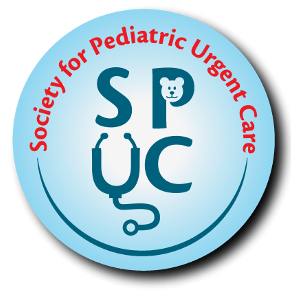DESCRIPTION
- Lateral twisting or rotation of neck; also called wryneck
- This chapter will focus on acquired torticollis, not congenital
PATHOPHYSIOLOGY
- Injury or inflammation of sternocleidomastoid (SCM) or trapezius muscle
- Most common in school age children
- Acute infection with referred pain to SCM or compensatory muscle spasm
ETIOLOGY
- Minor trauma/inflammation most common
- Viral myositis
- Viral or Streptococcal pharyngitis
- Upper respiratory infection
- Upper lobe pneumonia
- Dystonic drug reaction
- Sandifer syndrome
ALERT – LIFE THREATENING CAUSES
- Retropharyngeal abscess (RPA)
- Lemierre syndrome (suppurative jugular thrombophlebitis)
- Spinal epidural hematoma
- Posterior fossa tumor
- Cervical spine injury
DIFFERENTIAL DIAGNOSIS
- Atlanto-axial rotary subluxation (AARS) – rotational displacement of C1 on C2, due to retropharyngeal edema, laxity of ligaments that allows rotary deformity
-
- 6-12 years
- Seen after minor trauma, pharyngeal surgery, upper respiratory infection
- Grisel syndrome – non-traumatic AARS
- Cervical spine inflammation or tumor
- Spondylitis
- Juvenile idiopathic arthritis
- Osteoid osteoma
- Benign paroxysmal torticollis
- Ocular torticollis
ALERT
- If trauma or subluxation suspected, immobilize cervical spine immediately
DIAGNOSIS
History
- Sudden onset of neck pain and distress upon awakening from sleep
- Minor falls/trauma
- Medication history eg. phenothiazines, carbamazepine, phenytoin cause dystonic reactions
PHYSICAL EXAM
- SCM spasm and tenderness with ipsilateral head tilt and contralateral chin tilt
- Limited cervical spine motion
- Normal pharynx, lymph nodes, nervous system
ALERT
- Avoid passive range of motion because of risk of vertebral subluxation
- Facial asymmetry if congenital or long-standing
- AARS: SCM spasm on ipsilateral side of chin tilt, tenderness of C2 spinous process, change in nasal resonance, unilateral occipital pain
- Fever, drooling, stridor suggests RPA
- Headache, vomiting, ataxia or neurologic deficits suggests posterior fossa tumor or spinal epidural hematome
- Fever, pharyngitis, tachypnea, tenderness over internal jugular vein suggests Lemierre’s
- Point cervical spine tenderness in fractures, subluxation, diskitis, osteomyelitis
- Tachypnea and rales in pneumonia
DIAGNOSTIC TESTS & INTERPRETATION
Lab
- Initial Lab Tests
- Usually not indicated
- Rapid streptococcal or Monospot testing
Imaging
- Usually not indicated
- Cervical spine xray in trauma, persistent cases, severe pain, point tenderness
- Open mouth odontoid X-ray may visualize asymmetry of odontoid in relation to atlas in AARS
- Chest xray if indicated
- CT cervical spine if RPA, fracture or subluxation suspected
- CT with contrast if Lemierre’s suspected to visualize jugular venous thrombosis
- MRI for tumors, cervical osteomyelitis, diskitis suspected
TREATMENT
MEDICATION
First Line
- NSAIDS
- Cervical collar (soft or rigid) for comfort
- Muscle relaxants like benzodiazepine eg. Diazepam
Second Line
- Treat any underlying secondary cause e.g. antibiotics for streptoccal pharyngitis, diphenhydramine or diazepam for dystonic reactions
SURGERY / OTHER PROCEDURES
- Prompt surgical or subspecialty consultation evaluation if life-threatening cause found
FOLLOW UP
- Discharge instructions and medications
- NSAIDS
- Short course of benzodiazepine
- Cervical collar (soft or rigid) for comfort
Activity
- Limit activity until resolved
Patient Monitoring
- Follow up in 1 week
- If not resolved, needs further evaluation for other causes
PROGNOSIS
- Usually resolves in 1 week
REFERENCES
- Torticollis. In: Essentials of Musculoskeletal Care, 2nd, Greene WB (Ed), American Academy of Orthopedic Surgeons, Rosemont 2001. p.719
- Torticollis. In: Signs and Symptoms in Pediatrics, 3rd, Tunnessen WW, Roberts KB (Eds), Lippincot Williams & Wilkins, Philadelphia 1999. p.353
PEARLS AND PITFALLS
- Chin should point away from affected SCM muscle
- Any neurologic deficit should prompt evaluation for other causes
